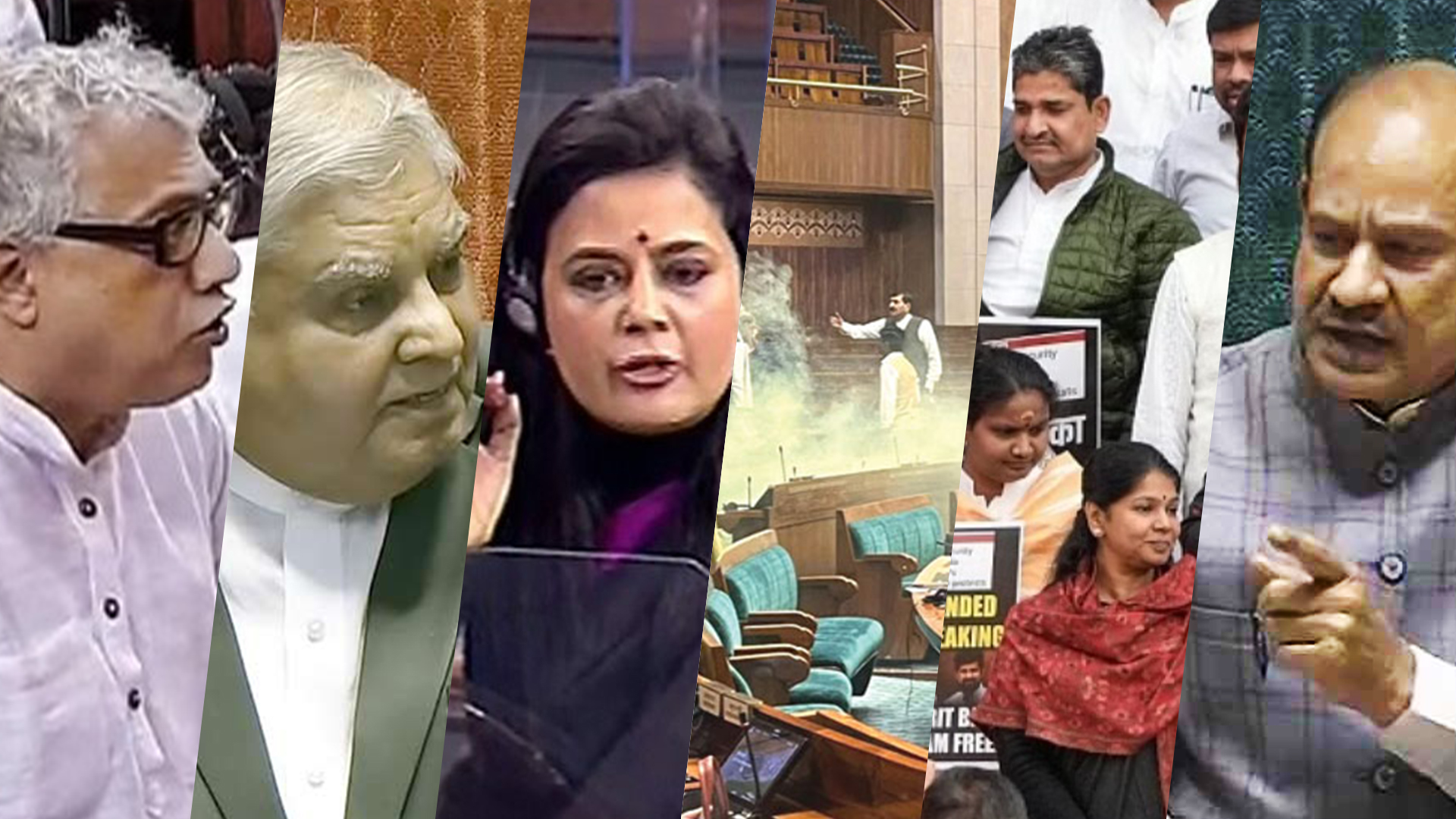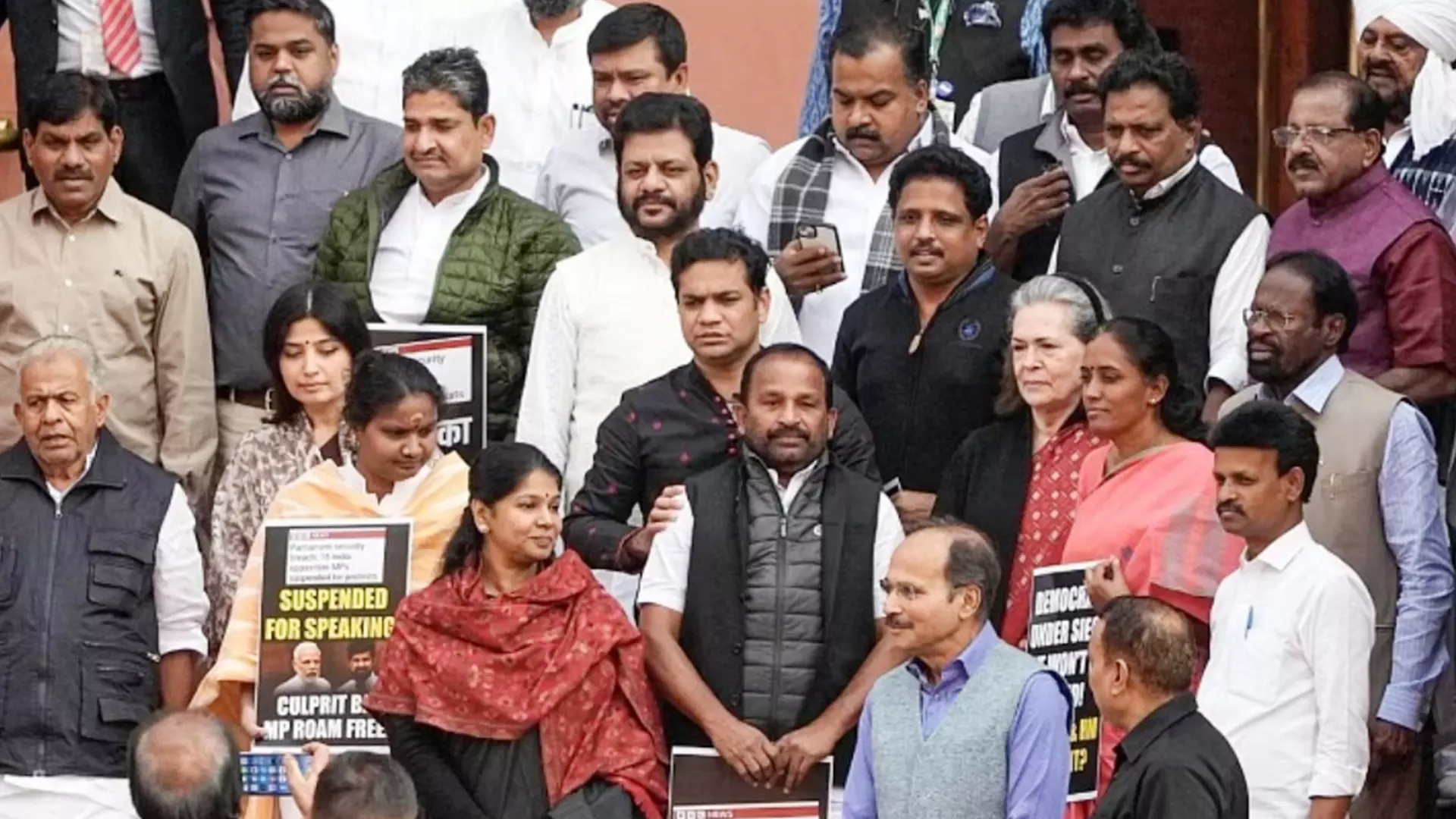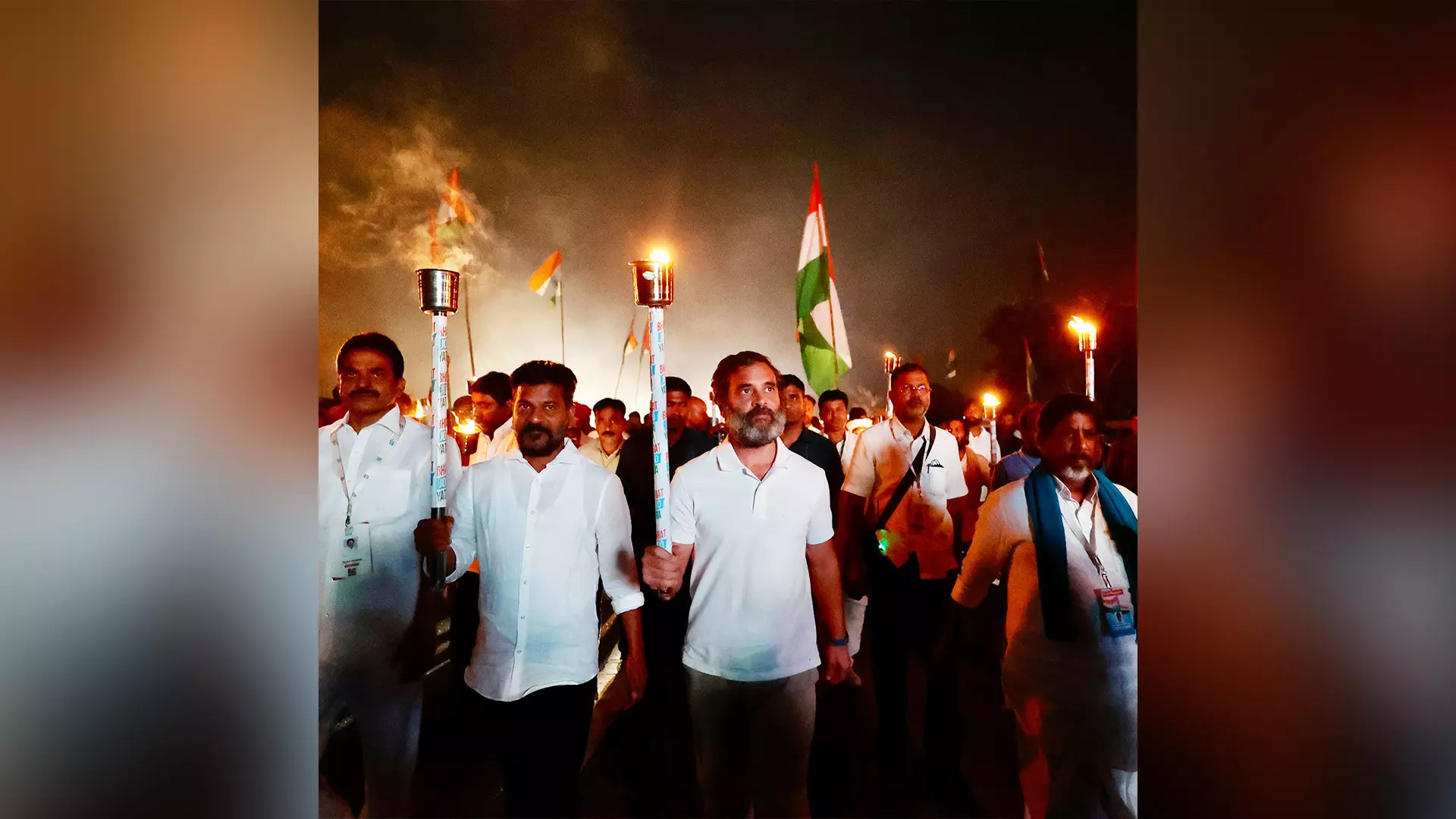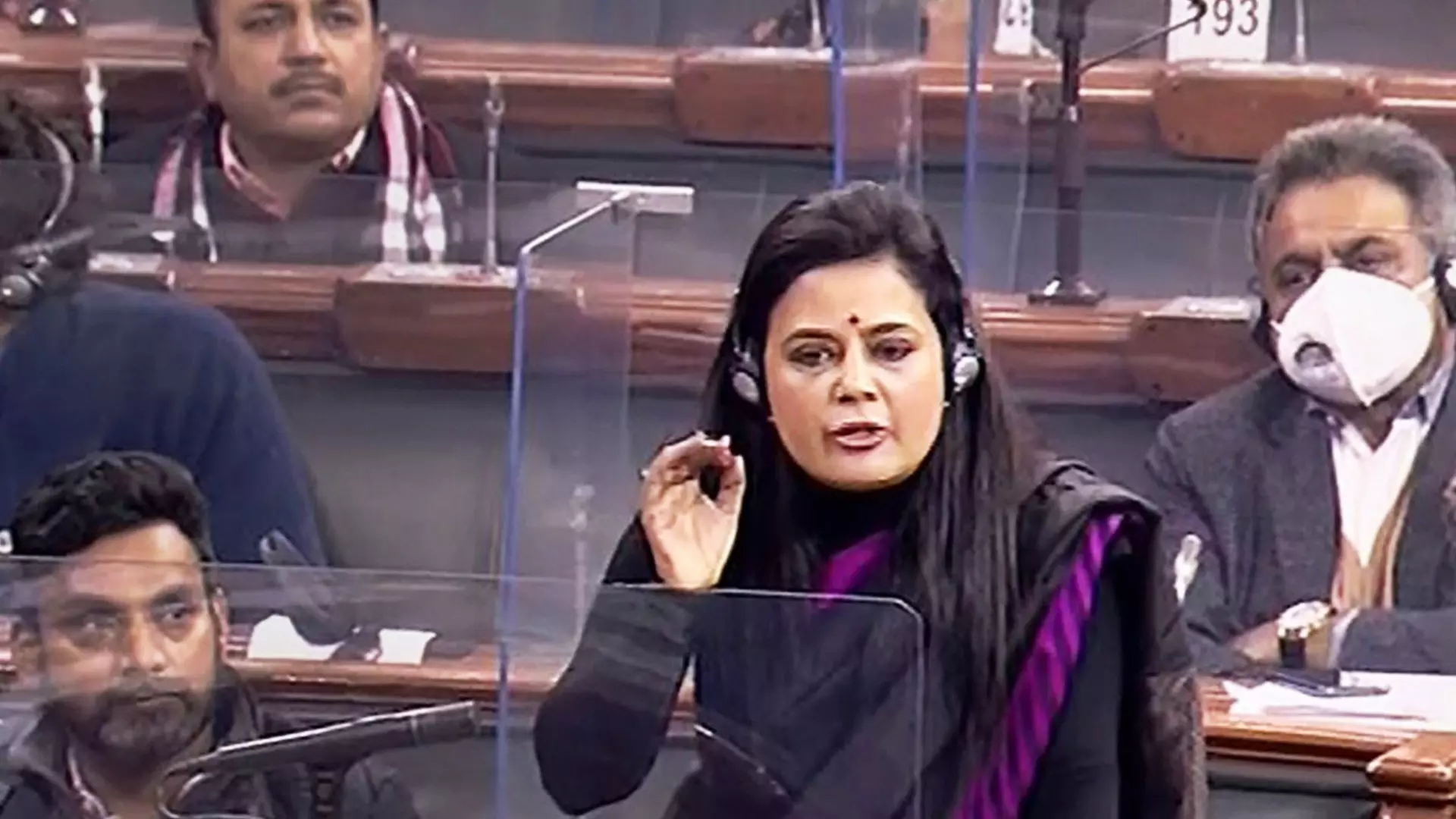
- Home
- India
- World
- Premium
- THE FEDERAL SPECIAL
- Analysis
- States
- Perspective
- Videos
- Sports
- Education
- Entertainment
- Elections
- Features
- Health
- Business
- Series
- In memoriam: Sheikh Mujibur Rahman
- Bishnoi's Men
- NEET TANGLE
- Economy Series
- Earth Day
- Kashmir’s Frozen Turbulence
- India@75
- The legend of Ramjanmabhoomi
- Liberalisation@30
- How to tame a dragon
- Celebrating biodiversity
- Farm Matters
- 50 days of solitude
- Bringing Migrants Home
- Budget 2020
- Jharkhand Votes
- The Federal Investigates
- The Federal Impact
- Vanishing Sand
- Gandhi @ 150
- Andhra Today
- Field report
- Operation Gulmarg
- Pandemic @1 Mn in India
- The Federal Year-End
- The Zero Year
- Science
- Brand studio
- Newsletter
- Elections 2024
- Events
- Home
- IndiaIndia
- World
- Analysis
- StatesStates
- PerspectivePerspective
- VideosVideos
- Sports
- Education
- Entertainment
- ElectionsElections
- Features
- Health
- BusinessBusiness
- Premium
- Loading...
Premium - Events

“Parliament turned into a deep, dark chamber,” tweeted Trinamool Congress’s Derek O’Brien recently. O’Brien was ruing the suspension of 146 MPs, including his own, during Parliament’s winter session for demanding a discussion on the December 13 breach in the security of Indian democracy’s biggest symbol and a statement from Union Home Minister Amit Shah on the incident.The...
“Parliament turned into a deep, dark chamber,” tweeted Trinamool Congress’s Derek O’Brien recently. O’Brien was ruing the suspension of 146 MPs, including his own, during Parliament’s winter session for demanding a discussion on the December 13 breach in the security of Indian democracy’s biggest symbol and a statement from Union Home Minister Amit Shah on the incident.
The Trinamool leader’s pithy reflection on India’s Parliament sums up the growing despair that not just the country’s political Opposition but also the amorphous mass of Prime Minister Narendra Modi’s critics have plunged into in the year gone; arguably, way more than they had in the preceding nine years of the BJP regime.
This is not to say that Parliament had been functioning perfectly until the recently concluded winter session or that India’s democracy suddenly turned into a chimera in the last month of 2023 — far from it. Yet, despite all the raucous disruptions that previous sessions of Parliament had witnessed, despite the decreasing parliamentary scrutiny of crucial Bills and the Modi government’s growing proclivity for having such legislation bulldozed through Lok Sabha and Rajya Sabha and despite the unfortunate but evident partisan conduct of proceedings of both Houses by their respective presiding officers, there had earlier been at least a visage of maintaining parliamentary decorum.
The suspension of 146 Opposition MPs across the two Houses of Parliament for demanding, no matter how uproariously, a discussion on something as serious as a security breach in a recently inaugurated, professedly impregnable Parliament, shattered that visage. If earlier sessions of Parliament had exposed the Modi government’s propensity for riding roughshod over parliamentary conventions of scrutiny and debate to have its legislative agenda passed, the last session established a new precept.

Opposition MPs protest in Parliament against the mass suspension of legislators.
Purging the Opposition entirely from the Lok Sabha and Rajya Sabha, barely four months before the next General Elections, and then using Parliament to sanctify new laws—the three new criminal laws, the Telecommunications Bill, the Bill for appointing election commissioners, and sundry others—that have far-reaching and manifestly adverse consequences for India’s democracy as a whole has now been established as parliamentary precedent. Worse, the Lok Sabha Speaker and the Rajya Sabha Chairman have been more than willing accomplices in this new parliamentary precept.
That all of this is happening when Bharat (or is it still India?) has, as per the Prime Minister and his brigade of cheerleaders, entered an enchanted Amrit Kaal—completing 75 years of a hard-won freedom—and established itself both, as the “Mother of Democracy” and a “Vishwaguru” —may seem revoltingly ironic. Yet, this winter of discontent did not just set in without warning.
Curbs on dissent, crackdowns on political opponents, critics and votaries of civil liberty, wantonly selective targeting of rival by central investigative agencies, muzzling the press, compromising constitutional institutions, suspending few MPs in different sessions of Parliament, et al—the macabre undermining of democracy had been a work in progress since 2014. Indeed, but for the added element of jingoistic nationalism intertwined with Hindu supremacy, India had seen parallels of such assaults on her democratic ethos with varying degrees under previous regimes too—most notably, the Emergency era under Indira Gandhi’s Congress rule. What seemed to have changed in 2023, though, was the degree of brazenness in employing such excesses.
For the Opposition, particularly the Congress party, the year gone by may have started on a somewhat positive note with the culmination of Rahul Gandhi’s well-received Bharat Jodo Yatra on January 30 in Srinagar. The scorching insinuations made in the Hindenburg Research report about a Modi-Adani nexus allowed the combined Opposition to launch a well calibrated and pitched offensive against the Centre just when it unveiled its last full budget of its current term. For a moment, the otherwise noisy government seemed to go on the back foot with its perennially voluble Prime Minister taking refuge in silence while the Congress and wider Opposition paralysed Parliament with their demand for a Joint Parliamentary Committee probe into the Hindenburg revelations.

For the Opposition, particularly the Congress party, the year gone by may have started on a somewhat positive note with the culmination of Rahul Gandhi’s well-received Bharat Jodo Yatra on January 30 in Srinagar.
By April, the empire struck back with a ruthlessness that few imagined it would dare. Armed with a conveniently enabling judgment by a Gujarat lower court in the so-called Modi surname case that sentenced Rahul to two years in prison for defamation, the government moved briskly to have the former Congress president disqualified from Lok Sabha. Though the sentence was stayed by the Supreme Court in August, ensuring Rahul’s reinstatement as an MP, the fact that he was disqualified from the Lok Sabha was a clear statement of intent by the regime that it would, henceforth, take no prisoners.
“That was as clear a warning to the Opposition as it could be... though AAP leaders like Satyender Jain and Manish Sisodia had been arrested earlier in the year, no one thought that the government would actually go so far to have someone like Rahul, a former Congress president and a member of the Gandhi family, disqualified from the Lok Sabha. It was like the government telling all Opposition leaders, and a number of them were already under the scanner of one agency or the other, that if we can do this to Rahul Gandhi, we can do this to anyone; so fall in line,” Congress MP and veteran journalist Kumar Ketkar told The Federal.
For the BJP though, Rahul’s disqualification, coupled with the Centre’s aggressive hounding of other prominent Opposition leaders through ED, CBI and the IT department, and perhaps also the Congress’s massive victory in the Karnataka assembly polls, collectively acted as a catalyst for uniting a fragmented Opposition. By September, 28 Opposition parties came under the overarching and admittedly unwieldy umbrella of the INDIA coalition, committing themselves to the common purpose of fielding consensus candidates against BJP nominees on 350 to 400 of Lok Sabha’s 543 seats in the 2024 General Elections to ensure Modi’s ouster from power.
Despite contradictions and strife within the INDIA bloc surfacing from time to time, the coalition also came up with what it felt was a narrative that could severely restrict the appeal of BJP’s Hindutva—the push for a pan-India caste census, taking cue from an already published caste survey in Opposition-ruled Bihar, and its deployment to address age-old maladies of social injustice and economic inequity. Modi’s deafening silence on the ethnic clashes and unspeakable atrocities against women in BJP-ruled Manipur also afforded the Opposition a chance to slam the Prime Minister’s vociferous self-projection as a protector of women and an unyielding administrator of law and order.
Never one short of an ace up the sleeve, the government recouped and shot back while the INDIA bloc was still coalescing. Having already used India’s rotational presidency of the G-20 to kick up a hysteria of nationalistic pride, replete with a mindless juxtaposition of Bharat against India, the Modi government opened the new Parliament with a ‘special session’; the agenda of which was kept tightly guarded till the five-day session actually commenced.
After leaving the Opposition guessing for weeks on what the special session would transact (among these were speculations over a Uniform Civil Code, simultaneous elections to the Lok Sabha and State Assemblies, amending the Constitution to omit India as the country’s name), the government brought in a half-baked legislation guaranteeing the long-pending 33 percent reservation to women in legislatures and the Lok Sabha. Caught off-guard, the Opposition was forced to support the Bill with near unanimity after registering some protestations over the indeterminate timeline of the quota’s implementation and the absence of a sub-quota for OBC women within the 33 per cent reservation pie.
In the ultimate summary, it did not matter that the Centre had once again blindsided the Opposition nor even that the Bill established a new precedent of a law being enacted but not implemented. What mattered was that a promise that successive governments had made to half the country’s population but failed to deliver was now on the cusp of realisation, even if its timeline remained a mystery—and more importantly, that Modi made this happen.
Despite that great personal success for Modi and an almost simultaneous floundering of the talks within the INDIA bloc, the Opposition remained hopeful of a turnaround as assembly polls for four big states—Madhya Pradesh, Chhattisgarh, Rajasthan and Telangana – approached. Not just the Congress, which was in direct contest with the BJP in MP, Chhattisgarh and Rajasthan, but the INDIA bloc as a whole was positive of a setback to the saffron juggernaut in the Hindi speaking states – an outcome that would have undoubtedly given the Opposition a major boost ahead of the Lok Sabha polls. The BJP’s campaign, jarring, inchoate and at odds with the party’s seemingly powerful satraps in these states, was pitched against an aggressive Congress and ground reports of an uptick in the Grand Old Party’s popularity. Many believed that Modi mania alone may no longer guarantee the BJP victories in states.
Yet, as December rolled in, cacophonous prophecies of a saffron singe proved grossly off the mark. Though the Congress wrested Telangana from the Bharat Rashtra Samithi, it was humiliated with crushing defeats in the Hindi Heartland; unexpected results that reinstated Modi’s image as India’s preeminent vote magnet and have, arguably, legitimised the arbitrary, divisive and muscular governance that the Prime Minister has come to symbolise, and among his countless supporters, be celebrated for.
With Modi’s popularity on a surge once again, it was, perhaps, expected that the Opposition would be given no quarter by the government when Parliament convened for its winter session. The expulsion of Trinamool Congress MP Mahua Moitra from the Lok Sabha in an evidently dubious cash-for-query case, was, like Rahul’s disqualification or the suspension of MPs in previous sessions, another cautionary signal from the government to the Opposition.

Trinamool Congress MP Mahua Moitra was suspended from the Lok Sabha in the cash-for-query case.
The security breach incident, currently under a probe that hasn’t revealed anything, and the role of BJP MP Prathap Simha in facilitating the entry into Parliament of the youth arrested in the case, justifiably triggered uproar by the Opposition. What the Opposition clearly did not fathom was that the government, high on yet another round of poll victories, wasn’t going to let democratic niceties come in its way of crushing their reprisal – nor, for that matter, would the Lok Sabha Speaker and Rajya Sabha Chairman.
The Opposition is now back to its drawing board of the INDIA bloc. The BJP’s sweep across the Hindi Heartland, the Supreme Court’s upholding of the abrogation of Article 370 and the forthcoming inauguration of Ayodhya’s Ram Mandir, coupled with the party’s enormous election war chest, which includes not just financial resources but also large sections of the media as well as constitutional, administrative and investigative institutions, collectively bolster Modi perceived invincibility at the hustings now more than ever before.
The INDIA bloc knows it has a lot more ground to cover than the 6,200 kilometres of Rahul Gandhi’s upcoming Manipur to Mumbai Bharat Nyay Yatra. The question is, whether it also has the courage of conviction to see this fight to the finish. It’s over to 2024 now.

